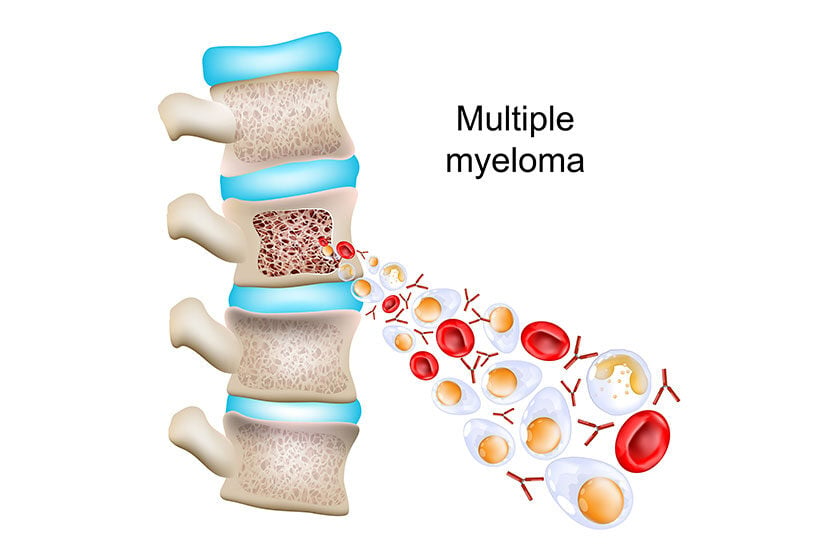Navigating Multiple Myeloma: Tailored Treatments for Elderly Individuals

Multiple myeloma is a type of cancer that primarily affects plasma cells in the bone marrow, and its incidence increases with age. As you or your family members enter your golden years, understanding of this condition is beneficial.
This cancer impacts the production of antibodies, which can compromise the immune system and lead to a range of health issues, from infections to anemia and bone damage.
The approach to treating multiple myeloma can vary significantly among the elderly, considering their overall health, life expectancy, and personal treatment goals. The focus is to provide comfort, maintain quality of life, and manage symptoms effectively. Here are several treatments that are commonly used.
Chemotherapy
Chemotherapy remains a cornerstone in the treatment of multiple myeloma, but for those in their golden years, the regimen may be adjusted to reduce side effects. Lower doses or less aggressive treatment schedules can help manage the cancer while maintaining a better balance with quality of life.
Targeted Therapy
This treatment method uses drugs that specifically attack cancer cells without affecting normal cells. Targeted therapy can be particularly beneficial for the elderly as it tends to have fewer side effects compared to traditional chemotherapy, making it a suitable option for managing the disease with a gentler touch.
Immunotherapy
Immunotherapy is a promising approach that helps the immune system recognize and fight the cancer cells. It is especially valuable for the elderly, as it can often be used in those who may not be able to tolerate the intensity of chemotherapy.
Supportive Treatments
Alongside direct treatments for multiple myeloma, supportive care is essential. This includes medications to prevent bone loss, treatment for anemia, and measures to prevent kidney damage. Each of these supportive treatments plays a vital role in enhancing comfort and improving the lives of those in their golden years.
When to Consider Assisted Living
Assisted Living can become a critical option for individuals diagnosed with multiple myeloma, particularly as the disease progresses and more intensive care needs arise. Assisted Living provides a structured environment with access to medical professionals who can manage complex health needs.
They also offer assistance with daily activities, medication management, and physical therapy, which can be invaluable as mobility decreases and care requirements increase.
Moreover, the social and emotional support available in Assisted Living helps address the isolation often experienced by cancer patients, enhancing their overall well-being and potentially improving outcomes.
Our Community Offers Compassionate Care
If you're considering an Assisted Living community that prioritizes your health and happiness, consider us. Our community offers a supportive environment where we cater to the unique needs of each individual.
We ensure that all our residents receive the care and attention they deserve, making their golden years as comfortable and fulfilling as possible. Discover more about how we can support you or your loved ones by exploring the senior living options we provide.
